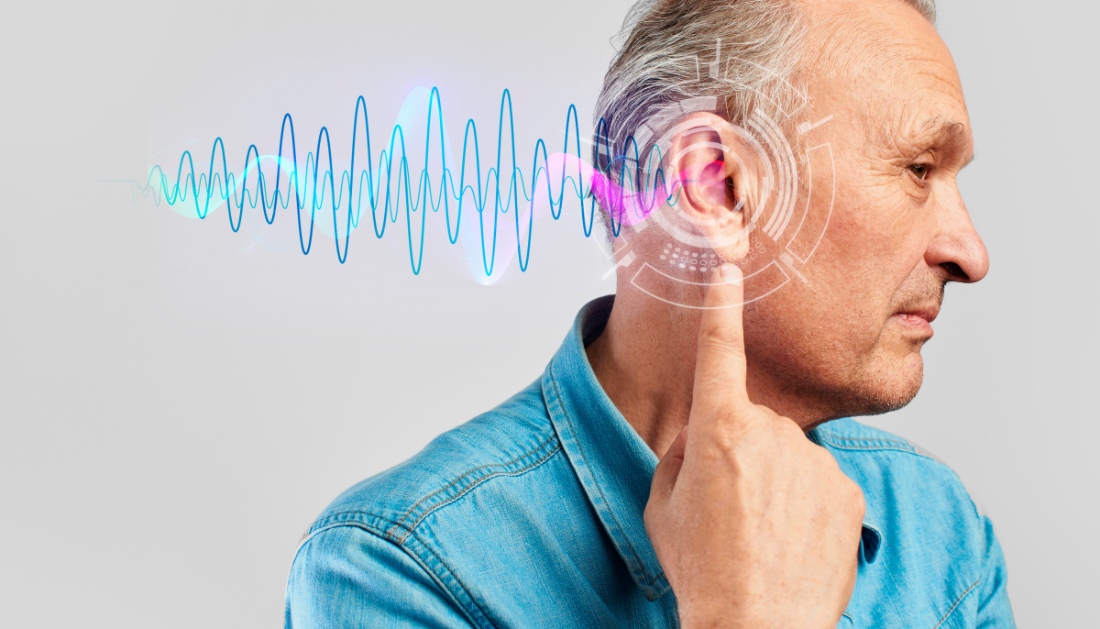

An international research team has demonstrated that a training course and sound therapy provided via a smartphone app can significantly lessen the terrible impact of tinnitus in only weeks.
The researchers from Australia, New Zealand, France, and Belgium published their findings in Frontiers in Audiology and Otology.
It provides some hope to millions of people who have been told there is nothing they can do about their tinnitus, face long lines for therapy, or cannot pay the price of specialized care.
The first experiment included 30 patients, with nearly two-thirds experiencing “clinically significant improvement.” In partnership with the University College London Hospital, the team is currently preparing larger trials in the United Kingdom.
MindEar, a smartphone app, is now accessible for users to try out.
Tinnitus affects up to one in every four people. It primarily affects older persons, but it can also affect youngsters. It fades gone on its own for some people. Others find it debilitating, impairing their hearing, emotions, attention, sleep, and, in severe cases, creating anxiety or melancholy.
“Approximately 1.5 million people in Australia, 4 million in the United Kingdom, and 20 million in the United States have severe tinnitus,” says Dr. Fabrice Bardy, an audiologist at Waipapa Taumata Rau, University of Auckland and the paper’s lead author. Dr. Bardy is also a co-founder of MindEar, a firm established to commercialize MindEar technology.
“One of the most common misconceptions about tinnitus is that there is nothing you can do about it; that you must simply accept it.” This is absolutely not the case. Professional assistance from those with tinnitus support skills can minimize the fear and worry associated with the sound patients feel,” he says.
“Cognitive behavioral therapy has been shown to help people with tinnitus, but it must be administered by a trained psychologist.” “That’s expensive and often difficult to obtain,” explains Professor Suzanne Purdy of Waipapa Taumata Rau, University of Auckland.
“MindEar employs a combination of cognitive behavioral therapy, mindfulness and relaxation exercises, and sound therapy to assist you in training your brain’s response so that we can tune out tinnitus.” “The sound you hear fades into the background and becomes much less bothersome,” she explains.
“After 16 weeks, two-thirds of our chatbot users improved in our trial.” “This was cut down to 8 weeks when patients also had access to an online psychologist,” explains Dr. Bardy.
What makes it work?
Even before we are born, our brains learn to filter out unnecessary sounds, such as the startlingly loud sound of blood rushing past our ears. Our brains develop to filter out external noises as we mature, such as a busy road, an air conditioner, or sleeping companions.
Most alarms, such as those found in smoke detectors, bypass this filter and cause people to become aware even when they are sleeping. This activates the fight-or-flight response, which is especially strong for noises associated with negative previous experiences.
Tinnitus, unlike an alarm, happens when a person hears a sound in his or her head or ears when there is no external sound source or risk in the surroundings, but the mind responds with a comparable alert response.
The noise is considered as unpleasant, bothersome, or obtrusive, and it cannot be turned off. The brain focuses on it relentlessly, instructing our minds to pay even more attention even when there is no danger. This provides a path for patients. The more you practice and actively give the tinnitus less attention, the easier it is to tune out.
MindEar’s training program seeks to help people exercise focus by equipping the mind and body to suppress stress hormones and reflexes, lessening the brain’s focus on tinnitus.
Tinnitus is not an illness in and of itself, but rather a sign of another underlying health problem, such as auditory system damage or tensions in the head and neck.
Although there is no known cure for tinnitus, there are management tactics and techniques that can provide respite to many sufferers. With the results of this research, the MindEar team is optimistic that there will be a more accessible, quickly available, and effective solution available for the many people suffering with tinnitus who are still waiting for help.
For more information: Delivery of internet-based cognitive behavioral therapy combined with human-delivered telepsychology in tinnitus sufferers through a chatbot-based mobile app, https://dx.doi.org/10.3389/fauot.2023.1302215
more recommended stories
 Nanoplastics in Brain Tissue and Neurological Risk
Nanoplastics in Brain Tissue and Neurological RiskKey Takeaways for HCPs Nanoplastics are.
 AI Predicts Chronic GVHD Risk After Stem Cell Transplant
AI Predicts Chronic GVHD Risk After Stem Cell TransplantKey Takeaways A new AI-driven tool,.
 Red Meat Consumption Linked to Higher Diabetes Odds
Red Meat Consumption Linked to Higher Diabetes OddsKey Takeaways Higher intake of total,.
 Pediatric Crohn’s Disease Microbial Signature Identified
Pediatric Crohn’s Disease Microbial Signature IdentifiedKey Points at a Glance NYU.
 Nanovaccine Design Boosts Immune Attack on HPV Tumors
Nanovaccine Design Boosts Immune Attack on HPV TumorsKey Highlights Reconfiguring peptide orientation significantly.
 High-Fat Diets Cause Damage to Metabolic Health
High-Fat Diets Cause Damage to Metabolic HealthKey Points Takeaways High-fat and ketogenic.
 Acute Ischemic Stroke: New Evidence for Neuroprotection
Acute Ischemic Stroke: New Evidence for NeuroprotectionKey Highlights A Phase III clinical.
 Statins Rarely Cause Side Effects, Large Trials Show
Statins Rarely Cause Side Effects, Large Trials ShowKey Points at a Glance Large.
 Anxiety Reduction and Emotional Support on Social Media
Anxiety Reduction and Emotional Support on Social MediaKey Summary Anxiety commonly begins in.
 Liquid Biopsy Measures Epigenetic Instability in Cancer
Liquid Biopsy Measures Epigenetic Instability in CancerKey Takeaways Johns Hopkins researchers developed.

Leave a Comment